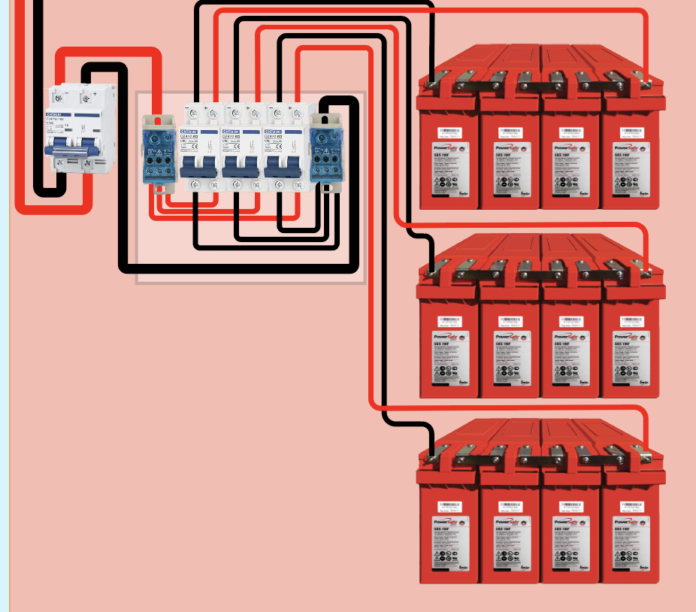How are the types of batteries used in solar energy systems classified?
The types of batteries used in solar energy systems are typically classified based on their chemistry, such as lead-acid, lithium-ion, or nickel-cadmium. Lead-acid batteries are the most common type used in solar energy systems due to their relatively low cost and long lifespan. Lithium-ion batteries have become increasingly popular due to their high energy density and long lifespan. Nickel-cadmium batteries are also sometimes used, but they are less common due to their relatively short lifespan and higher cost than other battery types.
What are the advantages and disadvantages of each type of battery?
Lead-acid batteries have the advantage of being relatively inexpensive and widely available and have a long lifespan (around 5-15 years) if appropriately maintained. They also have a relatively low self-discharge rate, meaning they can hold their charge for long periods. However, they have some disadvantages, such as being relatively heavy and bulky and having a limited number of charge/discharge cycles. Additionally, they require regular maintenance, such as adding water to the cells, and they need to be better suited for deep-cycle applications.
Lithium-ion batteries have a high energy density, meaning they can store energy in a small space. They also have a long lifespan (around 10-20 years) and a low self-discharge rate. They are lighter and more compact than lead-acid batteries and do not require regular maintenance. However, they are more expensive than lead-acid batteries and can be damaged if they are overcharged or discharged too deeply.
Nickel-cadmium batteries have a relatively low self-discharge rate, and they can be used in a wide range of temperatures but are relatively heavy and bulky. They also have a relatively short lifespan (around 3-5 years) and are more expensive than lead-acid batteries. They also have a memory effect, meaning the battery’s capacity can reduce over time if it is not fully charged or discharged.
It’s important to note that each type of battery has different characteristics, and the choice of a specific battery will depend on the application’s specific requirements and the system’s specific needs.
What would each type of battery cost for a 15-kW system, and how many batteries are required?
The cost of batteries for a 15-kW solar energy system will vary depending on the type of battery and the specific product being used. Additionally, the cost will vary depending on the location, the time of purchase, and the supplier.
Lead-acid batteries for a 15-kW system will typically cost between $2,000 to $6,000. The number of batteries required for a 15-kW system will depend on the capacity of each battery. Typically, a lead-acid battery has a capacity of around 100-200Ah, and for a 15-kW system, you would need around 75-150 batteries, depending on the capacity of each one.
Lithium-ion batteries for a 15-kW system typically cost between $5,000 and $12,000. The number of batteries required will depend on the capacity of each battery. Typically, a Lithium-ion battery has a capacity of around 200-400Ah, and for a 15-kW system, you would need around 38-75 batteries, depending on the capacity of each one.
Nickel-cadmium batteries for a 15-kW system will typically cost between $3,000 to $8,000. The number of batteries required will depend on the capacity of each battery. Typically, a Nickel-cadmium battery has a capacity of around 100-200Ah, and for a 15-kW system, you would need around 75-150 batteries depending on the capacity of each one.
It’s worth noting that these are rough estimates. The actual cost and number of batteries required could vary greatly depending on the specific product, location, supplier, and time of purchase.
How would one justify installing a 15-kW system in a house, and how many years would it pay for the investment according to today’s prices in a market like Florida in the US?
Installing a 15-kW solar energy system in a house can be justified based on several factors, including cost savings on electricity bills, environmental benefits, and increased property value.
In terms of cost savings, a 15-kW solar energy system can produce around 20,000-22,000 kilowatt-hours (kWh) of electricity per year, significantly reducing or eliminating a household’s monthly electricity bills. The savings will depend on the electricity rates and household consumption. In Florida, the average retail price of electricity is around $0.13/kWh, so a 15-kW solar energy system can save a household around $2,600 – $2,860 per year.
Regarding environmental benefits, a 15-kW solar energy system can offset around 15-20 tons of carbon dioxide emissions per year, which can help reduce the household’s carbon footprint and contribute to a cleaner environment.
In terms of property value, a solar energy system can increase a property’s value by around 4-5% as it is considered an upgrade. This increase in value can offset the system’s cost over time.
The payback period, or the time it takes for the system to pay for itself through cost savings, varies depending on the system’s cost, electricity, and the amount of sunlight in the area. In Florida, with today’s prices, a 15-kW solar energy system can pay for itself in around 6-8 years. This could vary depending on the location, installation cost, maintenance, and many other factors.
It’s important to note that these estimates are rough, and the actual payback period and savings may vary depending on several factors, such as the specific location, the cost of the system, the cost of electricity, the amount of sunlight, and the specific characteristics of the house.



